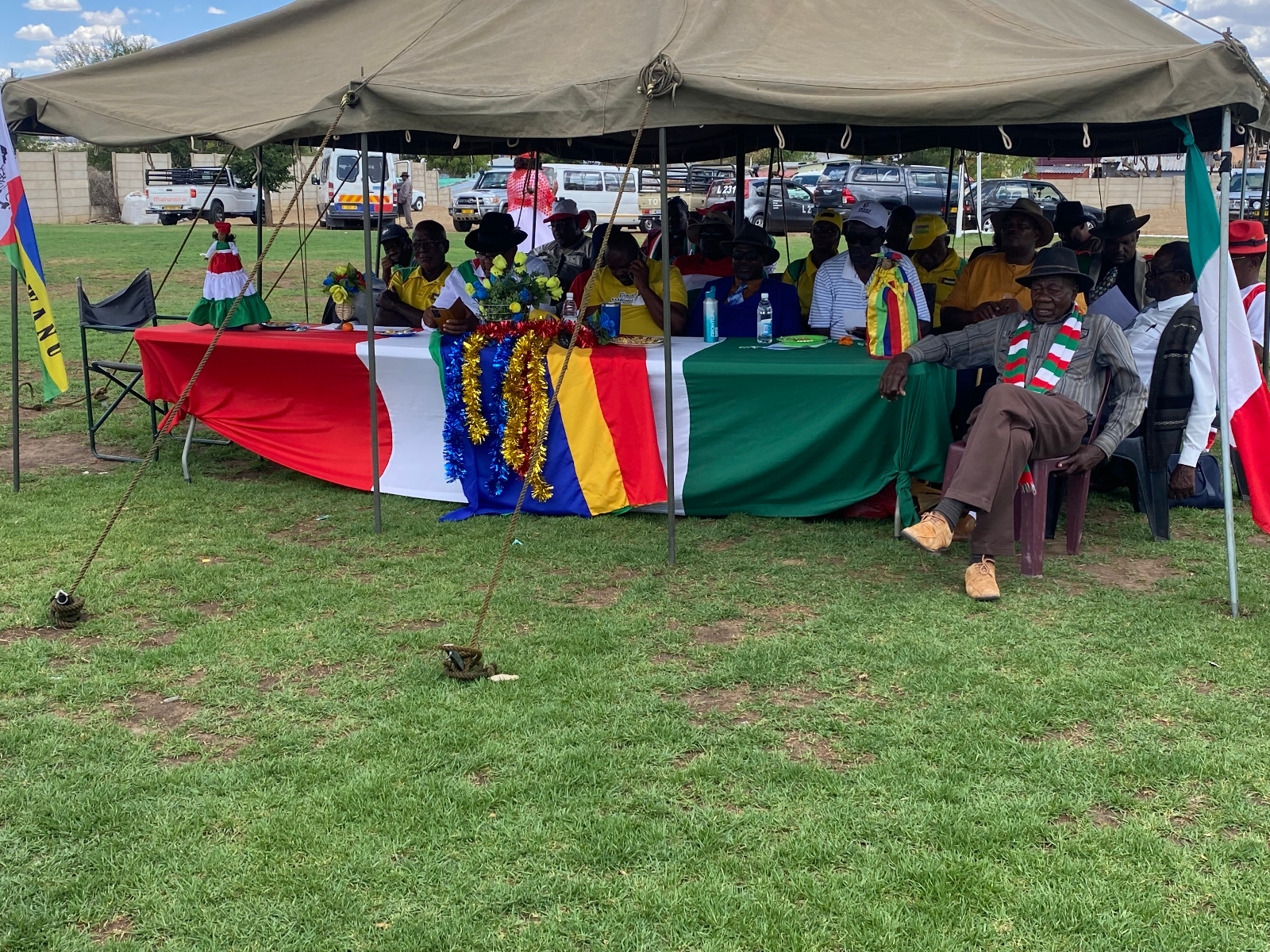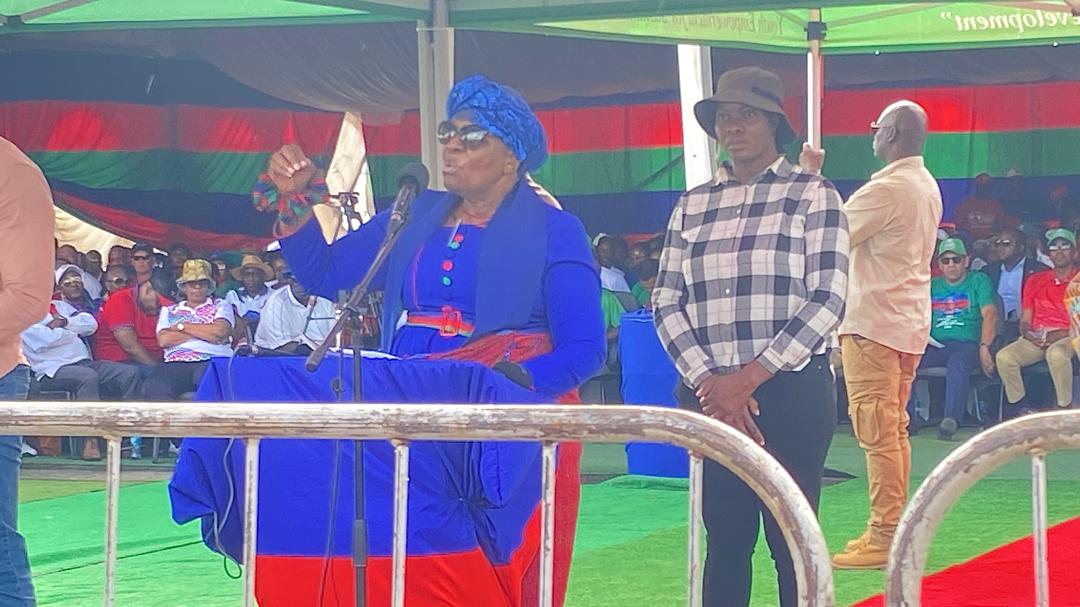The Swapo-backed Namibia Food and Allied Workers Union (Nafau) has failed to account for over N$20 million in union funds, including N$7 million in workers’ contributions.
This is according to an audit report from auditors Saunderson & Co, which analysed Nafau’s financial statement for the year ending December 2017.
It shows the union, which boasts 15 000 members across the country, is in a financial mess.
Former minister of fisheries and marine resources Bernhard Esau, who is facing charges in the Fishrot fishing quotas fraud and corruption case, was a trustee of the union until he was arrested in 2019.
‘NO PROPER CONTROLS’
“The union’s management did not keep proper accounting records and proper internal controls of its financial affairs,” the audit report says.
The report raises concerns on various areas of non-compliance and a lack of accountability, and attributes limitations to a lack of accounting controls and proper record-keeping practices by the union’s management.
One of the major concerns raised in the report relates to the handling of voluntary income from union members.
The auditors were unable to substantiate the completeness, accuracy and occurrence of membership income, amounting to a significant N$7 million.
“There is no database of members, resulting in no accounting controls being enforced by the union to determine the completeness and accuracy of membership income prior to processing in the accounting records.
“We could, therefore, not substantiate the completeness, occurrence and accuracy of membership income,” the report says.
The auditors also found that the union has no investment register and investment records, such as statements and certificates, which hindered the verification of the completeness, valuation and accuracy of Nafau’s investment balance of N$3,9 million.
Another concern was the unavailability of payroll summaries, rendering it impossible to verify the completeness and accuracy of employee costs, which amounted to N$3,5 million.
“[This] …. could not be verified as no payroll summaries were availed [sic],” the audit report states.
‘NO FIXED ASSET REGISTER’
Furthermore, specific areas of concern were identified, including the absence of a fixed asset register, which prevented the auditors from verifying the completeness, valuation, accuracy and existence of fixed assets.
“No fixed assets register was prepared for the period under review. We could, therefore, not substantiate the completeness, valuation, accuracy and existence of fixed assets amounting to N$1,3 million,” the report reads.
The report also highlights unresolved issues, such as improper reconciliation and the clearance of a suspense account, which amounted to N$2,9 million and other accruals totalling N$318 000.
Additionally, the auditors found no documentation regarding a loan balance owed by Nafau Investment Holding (Pty) Ltd, amounting to N$1,1 million, leading to doubts about the loan balance’s completeness, valuation and accuracy.
The auditors discovered that the union did not maintain proper accounting records, which made it impractical for them to scrutinise beyond the information they received, raising questions about the overall transparency and accuracy of Nafau’s financial records.
The lack of petty cash reconciliations during the review period, totalling N$83 000, further raised red flags.
“We could, therefore, not substantiate the completeness, valuation and accuracy of the petty cash balance,” reads the report.
A manager at Saunderson & Co confirmed to The Namibian that they carried out the audit, but declined to comment.
Nafau leaders who anonymously spoke to The Namibian said they have not seen the union’s financial statements.
They said audited financial statements are only made available during congress, and that in the absence of a congress, no one knows what the union’s finances look like.
The last Nafau congress was held in 2016.
Nafau’s leadership includes Mike Karupu (president), Abiud Tjipangandjara (deputy president), Jacob Penda (general secretary), Willem Absalom (deputy general secretary), Beaty Shanyengange (treasurer) and her deputy, Jennetha Kapere.
Penda has declined to comment.
“I am on leave. I will only call you when I am back at the office,” he said.
MORE MONEY, MORE TROUBLE
A 2018 report by accountant Matti Kaapangelwa from Lens Accounting Solution, which was tasked to look into the bookkeeping, budgets, internal controls and reporting for the union for the years 2015 to 2017, found a number of irregularities.
During this period, Kaapangelwa found that the union did not have an established accounting structure for the transactions from 2015 to 2017.
At the time, he found there was a weak audit trail for bank account transactions from 2015 to 2017, with missing cheques, vague descriptions and missing invoices.
He attributed this to the absence of a finance administrator during that period, which he said led to a lack of accounting work and disorganised filing.
“Our view is that a qualified audit opinion for the years 2015 to 2017 is almost inevitable,” Kaapangelwa said.
He also observed that the verification office lacks a functioning database, relying instead on unsynchronised Excel sheets.
This, he said, raised concerns about the potential loss of income from uncollected membership fees.
“The main challenge in our engagement was the poor communication within the organisation, especially between the finance administration office and the general secretary’s office,” said Kaapangelwa.
Efforts to get more recent comment from Kaapangelwa were unsuccessful.
VETERANS
Nafau’s founding member and former general secretary, Cuana Angula, has called for the union’s leadership to be held accountable for its financial mismanagement.
“They are a public institution, they must be audited, and they must submit a report to the Office of the Labour Commissioner,” he said.
Angula said if Nafau is found to be in a financial crisis, members have the right to open a criminal case against the leadership in charge during the financial years under review.
“Alternatively, they can also approach the Office of the Labour Commissioner and put the union under administration until everything has normalised,” he said.
“The Office of the Labour Commissioner can appoint a person who can run the organisation so that the money can be accounted for. The Labour Act makes provision for that,” he said.
Angula suspects financial accountability is one of the reasons the union is avoiding hosting a long-overdue congress.
Former president Elias Jonker also expressed strong criticism of the organisation’s current leadership, and called for a comprehensive restructuring of the union.
“Whatever is currently happening and experienced by the members of the organisation, is totally unacceptable and chaotic,” he said.
Jonker said the current state of disarray severely hampers any rescue efforts for Nafau.
He believes the union should be put under administration, and said he suspects the current leaders are only at the union for their own financial benefit.
“Some of those responsible for the organisation currently are only trying to milk the cow that cannot be milked, because there are no funds available for the organisation to continue,” he said.
In 2020, former Nafau central executive committee member Reinhold Shipwikineni asked the Anti-Corruption Commission to investigate issues of malpractice among the union’s leaders.
- This article was produced by The Namibian’s investigative unit. Send news tips from your secure email to investigations@namibian.com.na
Stay informed with The Namibian – your source for credible journalism. Get in-depth reporting and opinions for
only N$85 a month. Invest in journalism, invest in democracy –
Subscribe Now!






